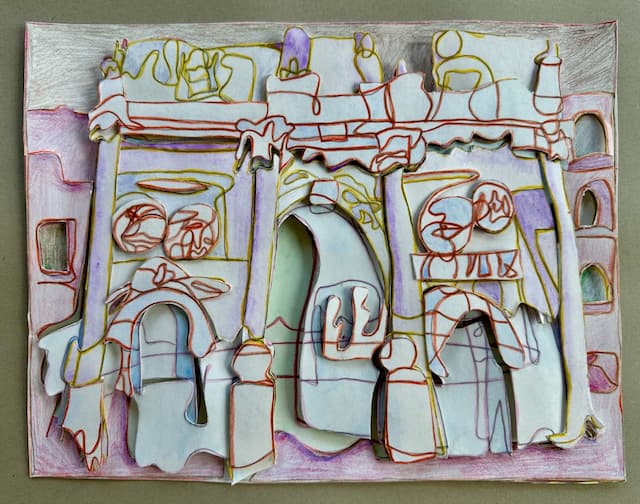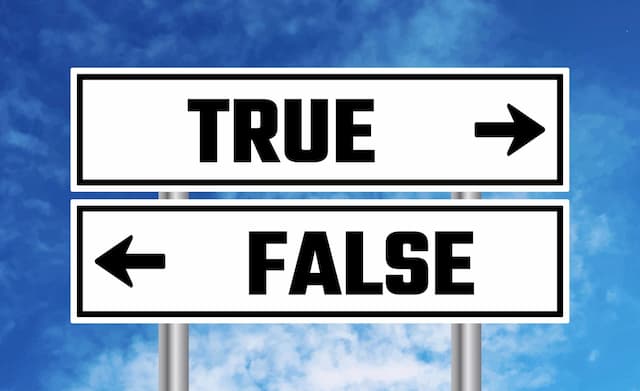Covenant or kingdom?

We’re God’s kingdom. That defines the relationship between heaven and earth. God is sovereign; we are his creatures in the earthly realm that is governed by heaven. Our relationship with God is that of king and kingdom.
Or maybe covenant is the unifying theme? There’s no shortage of theologians who see it that way. So who’s right? Is it kingdom or covenant?
Both themes run through Scripture, but they’re not competing. Kingdom is established through covenant.
Why covenant?
Why does covenant work as a unifying theme?
The idea of covenant is fundamental to the Bible’s story. At its most basic, covenant presents God’s desire to enter into relationship with men and women created in his image. This is reflected in the repeated covenant refrain, “I will be your God and you will be my people” (Exodus 6:6–8; Leviticus 26:12 etc.). Covenant is all about relationship between the Creator and his creation. The idea may seem simple; however, the implications of covenant and covenant relationship between God and humankind are vast.
— Alistair I. Wilson and Jamie A. Grant, “Introduction,” in The God of Covenant: Biblical, Theological, and Contemporary Perspectives, (Leicester, UK: Apollos, 2005), 12.
Some versions of covenant theology focus on the difference between law and grace (the old covenant and the new). Others focus on how the people of the old covenant will make it in the end.
While it’s helpful to understand the differences between the old and the new, those two are not the whole story. There are several covenants in Scripture. They form a developing story about the relationship between heaven and earth. Stephen Wellum calls this progressive covenantalism.
It’s Kingdom Through Covenant. That’s the title of a book by Gentry and Wellum. They’re right: covenant establishes kingdom.
Let’s trace the covenants through Scripture to see how God restores his kingdom to the earth.
Covenant with the whole earth
The first covenant in Scripture was promised to Noah (Genesis 6:18), but it’s bigger than Noah. It’s the broadest covenant of all: a commitment God made to all creatures, all people, the earth itself, for all time (Genesis 9:9-17).
After the flood, God replanted the earth with the same blessings and obligations as in the beginning (Genesis 8:15–9:3; Hosea 6:7). But earth was different now because of the violence. Addressing this issue, God gave humans authority over the lives of other humans for the first time (9:4-6).
God was not abdicating. Neither was he going to wipe us from the earth, even if that would be justice. God committed to governing us generously, regardless of how difficult we are to manage.
This is the formal commitment God made with his earthly realm. It’s his unilateral covenant with us, regardless of how we treat our sovereign, each other, or his world.
Notice the scope of the kingdom established by this covenant. The whole earth is a kingdom under heaven’s governance, for all time:
Genesis 9:9–16 (NIV)
9 I now establish my covenant with you and with your descendants after you 10 and with every living creature that was with you … every living creature on earth. … 12 a covenant for all generations to come … 13 the covenant between me and the earth. … 15 my covenant between me and you and all living creatures of every kind. … 16 the everlasting covenant between God and all living creatures of every kind on the earth.
Although scholars often miss the significance of this global and enduring covenant, it underpins all the covenants in Scripture. It is God’s faithful commitment that he will ultimately bring the nations back under his reign, even when they band together to try to take over his world (Genesis 10–11). That’s the setting for the Abraham covenant.
Covenant with Abraham
Abraham left the Babel-builders’ country, trusting God to establish a nation under God’s reign. But Abraham had no heir. That’s why God gave Abraham a covenant: it was God’s guarantee of the coming nation under God’s reign, Abraham’s descendants, in the promised land (Genesis 15:18).
This covenant was not unilateral. God required Abraham’s descendants to identify as the people who recognized God’s authority over them. In being circumcised they were marked as recipients of the covenant God made with Abraham (Genesis 17).
This covenant was not global. It was limited to Abraham’s descendants through Jacob who became Israel.
Covenant with Israel
When God liberated Jacob’s descendants from serving Pharoah, they were not free to serve themselves. They met their new sovereign at Sinai. There he called them into covenant relationship with him (Exodus 19:5).
The Sinai covenant established Israel as a nation under God. In accepting his covenant, the people committed to life under God’s instruction and leadership: We will do everything the Lord has said; we will obey (Exodus 24:7).
The covenant required them to provide a throne for their king. In the most holy space, the Lord sat enthroned between the cherubim, the symbolic guards of the presence. There the nation’s sovereign promised he would meet with you and give you all my commands for the Israelites (Exodus 25:22).
The covenant laws defined Israel as a nation under God: Observe them carefully, for this will show your wisdom and understanding to the nations, who will hear about all these decrees and say, “Surely this great nation is a wise and understanding people” (Deuteronomy 4:6).
The Sinai covenant established Israel as a kingdom unlike any other on earth, a kingdom under the direct reign of the Sovereign Lord of all the earth.
Covenant established kingdom.
Covenant with David
That’s how kingship worked in the Ancient Near East:
2 Samuel 5:3 (NIV)
When all the elders of Israel had come to King David at Hebron, the king made a covenant with them at Hebron before the Lord, and they anointed David king over Israel.
That was typical. Most nations had covenants with their kings. None of them had a covenant with their god: that was atypical, unique to Israel as far as we know. The point of the Sinai covenant was to enthrone the Lord as the sovereign over his nation.
But Israel struggled to live as a nation under God, so they asked for a king like the nations (1 Samuel 8:5, 20). God agreed. Saul failed, but God promised the kingship to David forever.
The promise to David was effectively a covenant, since it defined the king and kingdom for the generations to come. That’s what God told Solomon:
2 Chronicles 7:17–22 (NIV)
17 As for you, if you walk before me faithfully as David your father did, and do all I command, and observe my decrees and laws, 18 I will establish your royal throne, as I covenanted with David your father when I said, ‘You shall never fail to have a successor to rule over Israel.’ 19 But if you turn away … 20 then I will uproot Israel from my land.
The David covenant is therefore an adjustment to the Sinai covenant, a concession because people weren’t coping without a human king. Previously they were ruled by the Lord (Judges 8:23). Now they were ruled by the Lord and his anointed (Psalm 2:2).
New covenant
But the David covenant seemed to disintegrate. It was conditional on obedience, and the kings so misrepresented the heavenly sovereign that he declared the demise of the kingdom (2 Kings 21:1-16).
In 586 BC, God’s nation fell. His people were taken captive to Babylon. The kingship ceased. God no longer dwelt in the house that invited his kingship in Jerusalem.
People struggled to make sense of God’s covenant promises: You have renounced the covenant with your servant and have defiled his crown in the dust (Psalm 89:39).
They didn’t say God’s reign had failed, but they questioned whether they were still a nation ruled by God (Lamentations 5:19-22). The David covenant had fallen. Maybe the Sinai covenant had too, because of their disobedience. What the Sinai covenant established — a nation under God — no longer existed.
They needed a new exodus: God rescuing them from Babylon as he had done from Egypt. Isaiah promised this new exodus. God would lead them back, and re-establish them as his nation with a new covenant, affirming their role as his nation for the sake of the nations:
Isaiah 42:6 (NIV)
I, the Lord, have called you in righteousness; I will take hold of your hand. I will keep you and will make you to be a covenant for the people and a light for the nations.
Jeremiah was also responding to the fall of the old covenant when he promised a new one. God’s flock was scattered among the nations, no longer living as a nation under God (Jeremiah 31:10). Jeremiah delivered God’s promise that he would replant the divided and fallen kingdoms of Israel and Judah (31:27).
That’s what the new covenant does. The new covenant establishes the kingdom again. This time, it will be as God intended in the beginning, a kingdom led by and responsive to God’s leadership (Jeremiah 31:31-37).
So, how is this new covenant established?
A sower went out to sow
In Israel’s experience, kingdoms come through conquest. From the Roman invasion all the way back to Joshua, that’s how it was done.
But God did not send them a warrior to go out to war against the thornbushes that had overgrown his world. God sent them a sower who went out to sow, relying on the blessing of fruitfulness heaven decreed for the earth in the beginning.
Many of the sower’s seeds don’t grow in the devasted earth. Some don’t germinate. Others don’t take hold. Still others are choked by the thorns.
But the sower keeps sowing. Despite the regions that are unresponsive and unproductive, he trusts that what God decreed for the earth in the beginning will come to harvest in the end (Matthew 13:1-23).
The sower, not the warrior, re-establishes God’s kingdom. God’s anointed is vulnerable, falling into the earth like a kernel of wheat (John 12:24), along with his fallen people. He relies not on violent power but on the authority of heaven to raise him up, trusting that his people will come to life in him.
That’s how heaven’s kingdom is restored to the earth. The new covenant in my blood (Luke 22:20) establishes my Father’s kingdom (Matthew 26:28-29). That’s the only thing Jesus ever said about the covenant.
The new covenant established his kingship when heaven raised him up on the third day from tomb to throne, with an amnesty for the nations that have historically resisted God’s authority. They’re now called to recognize the heaven-appointed king of all the earth, starting with Jerusalem (Luke 24:45-47).
The Lord’s anointed is clothed with power from on high by this covenant declaration, and he radically shares his regal authority with those who recognize his kingship. The king himself reigns in the heavens, while his servants on earth have begun to live in the blessing of his reign (Luke 24:49-52).
This new covenant declaration from heaven fulfils the covenant God made with David (Romans 1:3). It fulfils the covenants God made with Israel (Romans 9:4). It fulfils the covenant God made with the whole earth, for even the nations that were strangers to the covenant are now fellow citizens with God’s people (Ephesians 2:12, 19).
Christ is reigning. We who recognize him are already his kingdom. The earth has begun to bear its fruit for heaven.
Conclusion
Covenant theology is not competing with kingdom theology. They emphasize different facets of the same truth.
Covenant theology emphasizes how the kingdom is restored, through the covenant faithfulness of God’s unfailing commitment.
Kingdom theology emphasizes life in the kingdom established by the unfolding covenant narrative, the unfailing commitment of our heavenly sovereign. God never gave up on the earth, and in the new covenant he has restored us into his governance through Jesus Christ our Lord. Always was, despite the rebellion. Always is, though not everyone recognizes him yet. Always will be the kingdom of our God.
What others are saying
Peter J. Gentry and Stephen J. Wellum, Kingdom through Covenant: A Biblical-Theological Understanding of the Covenants, (Wheaton, IL: Crossway, 2018), 36:
In accentuating kingdom through covenant, we view the covenants as theologically significant and as the backbone to Scripture’s entire storyline, similar to covenant theology. However, unlike most advocates of covenant theology, the biblical covenants are not divided into two categories: the covenant of works and the covenant of grace. Rather, God’s one, eternal plan unfolds in history through a plurality of interrelated covenants, starting with Adam and creation and culminating in Christ and the new covenant. The creation covenant serves as the foundation that continues in all the covenants, and it, along with all the covenants, is fulfilled in Christ and his obedient work. As God’s eternal plan is enacted on the stage of human history, it moves from creation in Adam to consummation in Christ.
Related posts
- God’s commitment to reign (Gen 9:7-17)
- Covenant with Abram (Gen 15:7-21)
- The sign of the covenant (Gen 17:9-27)
- My blood of the covenant (Mt 26:28)
- The covenant meal (1 Cor 11:23–26). Podcast version.
Seeking to understand Jesus in the terms he chose to describe himself: son of man (his identity), and kingdom of God (his mission). Riverview Church, Perth, Western Australia
View all posts by Allen Browne








